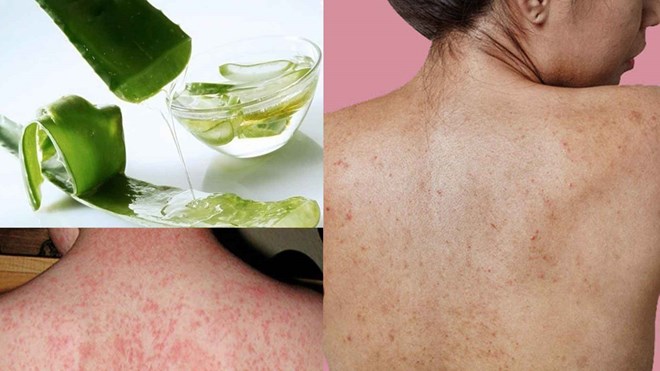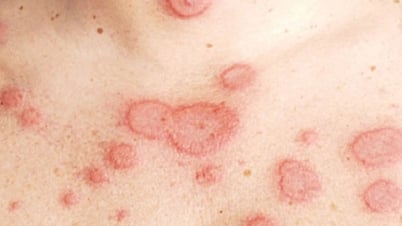
Causes of skin rashes
Skin rashes can be caused by a variety of factors, ranging from mild irritation to underlying medical conditions. Here are some common causes:
1. Contact dermatitis
Contact dermatitis is a skin rash caused by contact with irritants or allergens. It can be divided into two types: irritant contact dermatitis and allergic contact dermatitis.
Irritant contact dermatitis occurs when the skin comes into contact with a harsh chemical or irritant, causing a direct reaction.
Allergic contact dermatitis is an allergic reaction to specific substances: metals or chemicals, to which the body becomes sensitive.
2. Atopic dermatitis or eczema
Atopic dermatitis (AD), a type of eczema, is the most common chronic inflammatory skin disease. It is a persistent skin disorder that typically develops in infants or young children and results in itchy, red rashes.
3. Psoriasis
Psoriasis is a chronic skin condition that causes thick, scaly patches on the skin's surface that become red and itchy. These patches can form anywhere on the body, although they are most common on the elbows, knees, scalp, and lower back, according to a study published in the journal ClinMed.
4. Environmental factors
Exposure to harsh chemicals, soaps, or detergents can irritate the skin. Additionally, extreme temperatures, humidity, or dryness can contribute to skin rashes.
Symptoms of skin rash
Skin rashes can present in many different ways, but common symptoms include:
Affected areas are often red or inflamed.
Itching is a common symptom and can be very intense.
Some types of rashes can be painful or uncomfortable.
Skin may become dry, flaky or cracked.
Blisters or blisters may appear in the affected area.
The skin may be scaly or crusted.
The rash area on the skin may become swollen.
In some cases, the rash may be accompanied by a fever.
Is aloe vera an effective treatment for skin rashes?
Aloe vera has soothing and healing properties, making it a popular natural remedy for skin rashes. The gel found inside aloe vera leaves contains vitamins, minerals, and amino acids that can help heal sore skin. It also contains anti-inflammatory properties that can reduce the redness, swelling, and itching associated with rashes.
Source: https://laodong.vn/suc-khoe/phuong-thuoc-tu-nhien-chua-lanh-benh-phat-ban-tren-da-1383316.ldo































































































Comment (0)